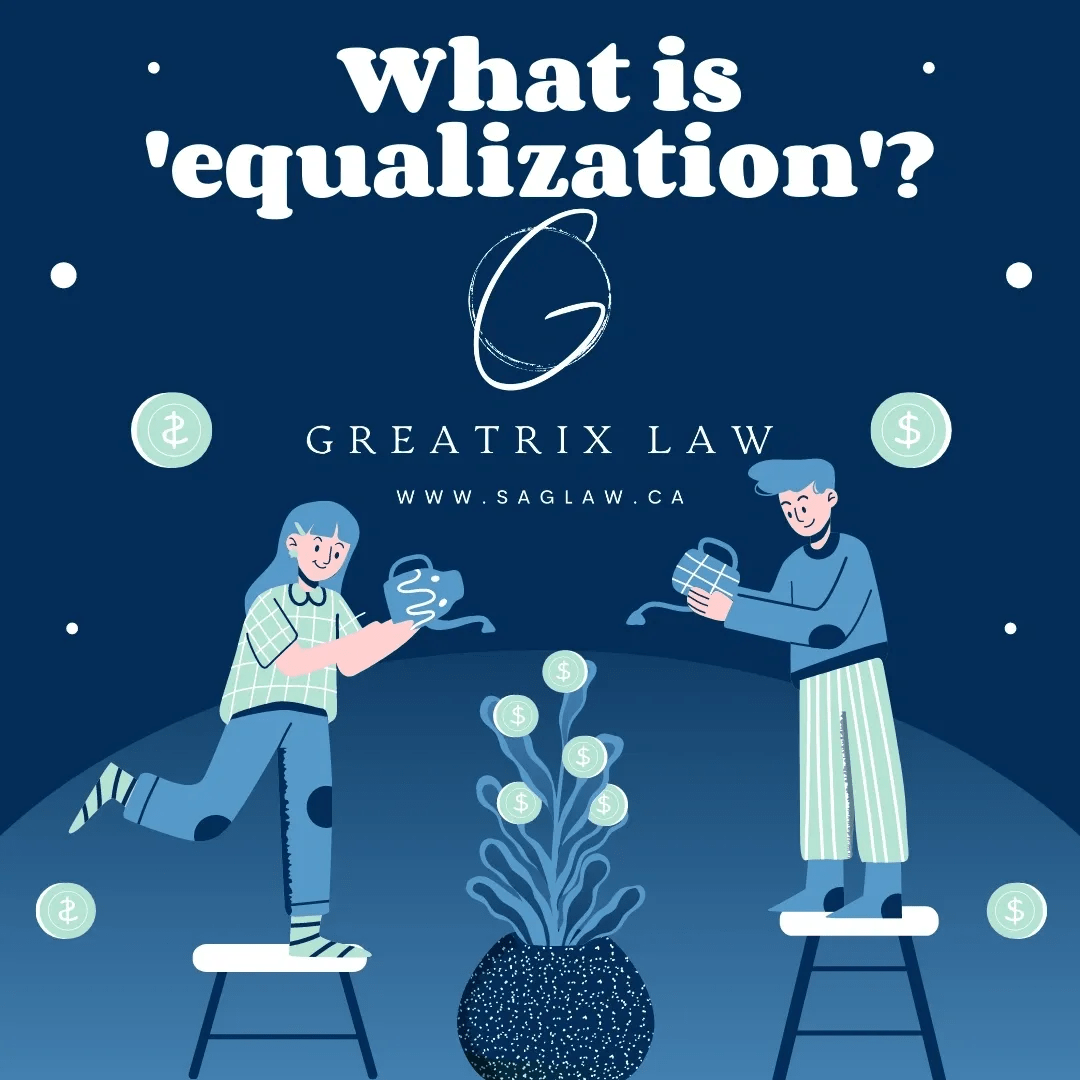Understanding the legal status of a relationship, whether married or common-law, is crucial as it dictates how property is handled in the event of a relationship breakdown. In Ontario, property rights are outlined in Part I of the Family Law Act, which applies solely to married or formerly married spouses.
What happens if I am married, but separated?
For married couples, the breakdown of a marriage triggers the application of Part I of the Family Law Act, invoking the equalization regime. Unless stipulated otherwise in an agreement, separated spouses are subject to equalizing their respective net family property accumulated during the marriage. This involves assessing each party's net worth at the commencement and termination of the marriage. The spouse with the higher net family property compensates the other with an equalization payment, typically half the difference between their respective net family properties.
Is there any property that is excluded from my Net Family Property?
Certain assets are excluded from a party's net family property, including gifts or inheritances received after the marriage, specific income sources designated as separate property, and proceeds from designated life insurance policies.
Financial disclosure: "I am concerned my former spouse is hiding assets."
The full disclosure of assets stands as a pivotal element in virtually every family law case. Failing to transparently reveal finances and assets can result in unfavorable and costly consequences decreed by the court. Should a situation arise where one party appears less than forthcoming regarding their asset disclosure, our dedicated legal team stands ready to undertake exhaustive efforts to unearth hidden assets, leveraging the assistance of seasoned experts when necessary. The process of asset disclosure may range from straightforward to intricate, particularly in cases involving trust arrangements, business holdings, and more. With a wealth of experience in navigating such complexities, our lawyers remain committed to guiding clients through every facet of their unique circumstances, ensuring clarity and confidence at every step of the legal journey.
I have been separated for 2 years, can I still bring a claim for equalization of Net Family Property?
Regarding the limitation period for claims related to equalization of net family property, a party has either six years from the date of separation or two years from the date of divorce to file a claim. Extensions may be granted by the court in certain circumstances.
For common-law spouses, the Family Law Act does not apply concerning property matters. Instead, property issues are resolved based on legal ownership and, in some cases, trust principles.
At Greatrix Law, our experienced lawyers specialize in addressing property matters for both married and common-law spouses. We are committed to achieving fair resolutions for our clients' property concerns.
For comprehensive family legal services, our firm offers expertise in areas such as divorce, child custody, spousal support, property division, financial disclosure, child support, custody agreements, cohabitation agreements, separation agreements, family mediation, domestic violence cases, Family Responsibility Office Enforcement, and parenting time arrangements.

This post does not constitute legal advice and is only intended for educational purposes.